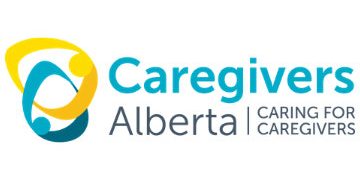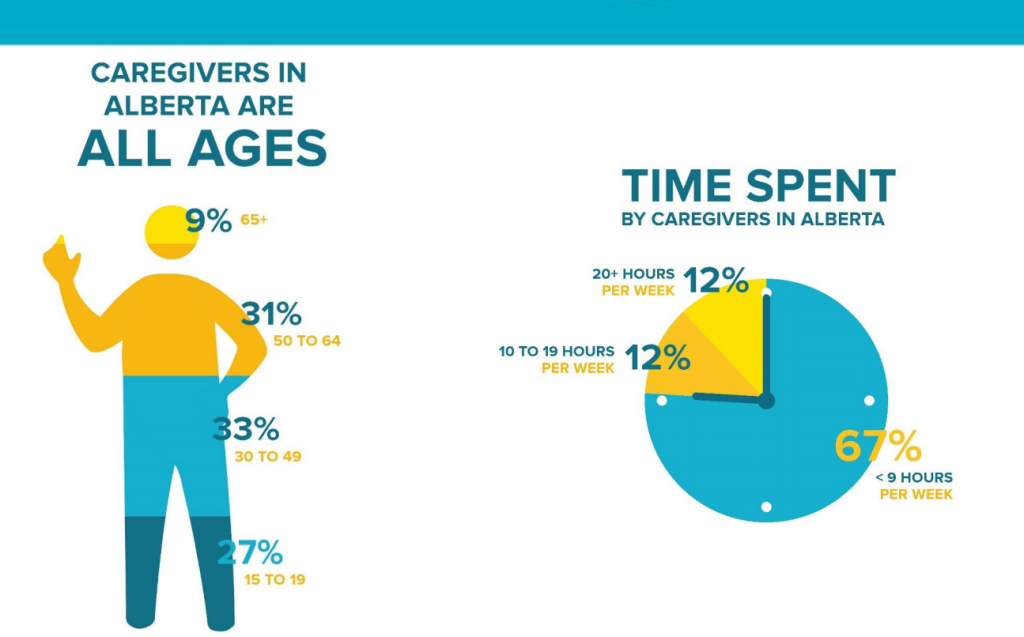Stakeholder Spotlight: Caregivers Alberta

Caregivers Alberta is marking 20 years since its inception. It was founded in 2001 by a group of caregivers looking to shift the support approach away from teaching caregivers how to be better at providing care, to providing them with support for their own well-being.
“There are many supports in the health care system for someone experiencing illness, disability, or age-related needs. But there are not services available to the caregivers of those individuals,” explains Johnna Lowther, Caregivers Alberta’s Director of Programs and Services. “We exist to support those family and friends providing care.”
The Caregivers Alberta website states more than one in four Canadian adults is a caregiver; the care they provide is worth an estimated $66 billion a year. They can be any age, dealing with any caregiving situation. The time commitment is significant, as are the stresses: from burnout, to strained relationships, financial hardships, employment impacts, and more, depending on circumstances.

Just as significant: the supports Caregivers Alberta offers. An important pillar of the organization’s mission is helping caregivers connect with others, navigate the system, and look after themselves while providing care. It all begins with the first step – reaching out to Caregivers Alberta. Lowther says this often provides an immediate release of tension. “We’re here to be the compassionate, empathetic listening ear.”
But it is so much more than that. Caregivers Alberta calls itself ‘an organization of caregivers, for caregivers.’ Many of the staff are either caregivers currently or have been at some point in their lives. This element of its identity is so important, the organization even identifies on its website the staff members who are or have been caregivers.
“We truly understand what the clients are going through,” says Lowther. She herself has been a caregiver. In sharing her story with ESCC about caring for a loved one with a serious illness, she expressed the importance of having a support system outside your inner circle. “You need someone that isn’t your immediate respite … you need some peer support people,” she says. “It feels safer. They are far enough away from you that you can let your guard down and express what you’re thinking and feeling without fear of judgement.”
Peer groups are one of many supports Caregivers Alberta offers, connecting people via the Caregiver Support Community. There are also various education sessions and workshops such as the COMPASS for the Caregiver program, a supportive workshop focused on caregiver well-being, self-care and finding balance while caregiving.
Clients are introduced to these supports after making that initial call to Caregivers Alberta. Support Coordinators are there to listen and help the caller figure out which avenue might meet their needs. Those needing additional guidance might be connected to a Caregiver Coach, who provides one-on-one support to help the client identify their needs and lay out next steps.
One of the most identified needs: respite. The need has only increased during the pandemic, as respite options such as day programs have been unable to offer in-person activities.
“You have all the caregivers and the clients of those programs who are isolated and stuck at home with no respite,” explains Lowther. “That’s a huge, immediate burden that just added more stress to caregivers.”
In adapting to the new environment, Caregivers Alberta reached out to one of its community partners, ElderCare Edmonton. The conversations ultimately produced Well Connected, a program delivered by ElderCare Edmonton which combines physical exercise, cognitive activities, and entertainment in a virtual environment (read more about the program here). It provides engagement and socialization for the care recipient, and peace of mind for the caregiver.
“It’s been a good outlet,” says Lowther. “It’s respite care because the attention is taken off of them, the responsibility is off them for all of that engagement.”
The Well Connected program is just one example of the collaborative nature of Caregivers Alberta’s work. In banding together with other community organizations, it can better fill the needs of a diverse group of clients and caregiving situations.
“We provide any and all levels of support that we can possibly offer,” explains Engagement Coordinator Angus Macdonell. “Which is why we have so many partnerships because if we can’t do it ourselves, then we reach out… it’s not about who’s on top of the totem pole, it’s about how we can work together to achieve the same goals.”
That mindset may be especially crucial in the years to come – as our population ages, the reliance on caregivers may increase. Macdonell stresses it’s more important than ever to shift mindsets, break down stigmas, and continue to support the caregiver.
“There has to be, I believe, a complete shift in the way we look at illness,” he says. “A lot of people believe that requiring care is bad – to them, it’s negative somehow. We need to have a much bigger conversation.”
That conversation can’t happen without the expertise of organizations like Caregivers Alberta. In addition to providing supports directly to caregivers it also advocates for the caregiver in community service systems and public policy. With such an integral role in what can be a complex environment, the message to not only caregivers, but also organizations that interact with caregivers is actually quite simple. “You are not alone,” Lowther says. “We are here to help.”
For more information on Caregivers Alberta: www.caregiversalberta.ca



